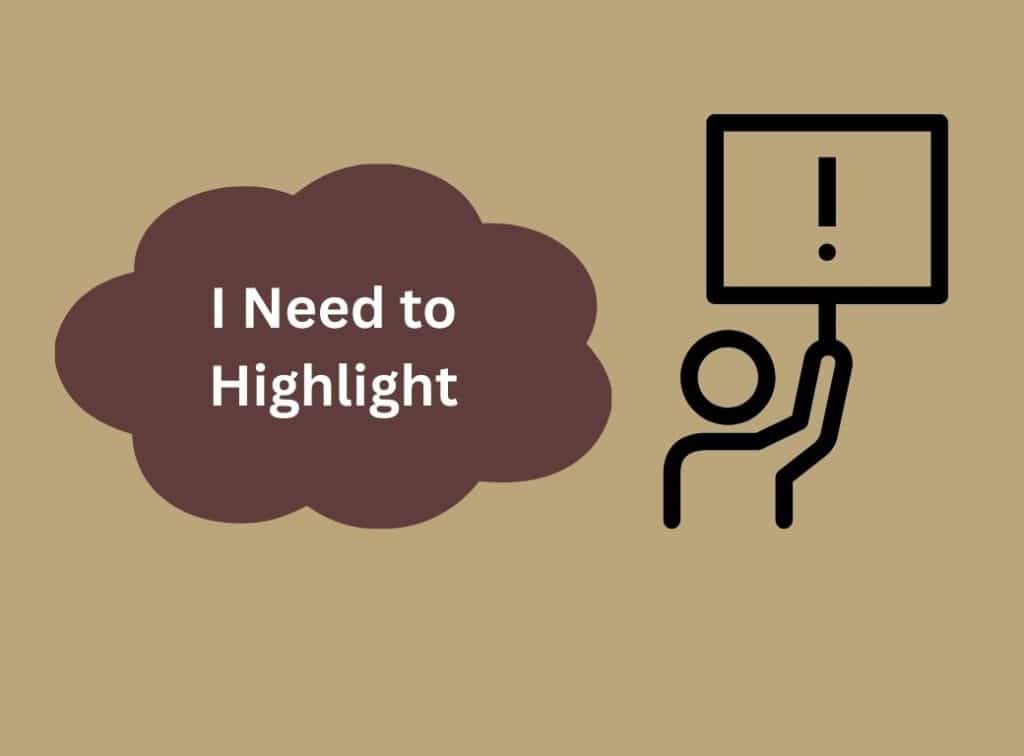Have you ever found yourself searching for the perfect way to express a missed opportunity or an important point? In professional and personal conversations alike, the phrase “I would be remiss” can feel a bit stale.
This reading explores 12 Other Ways to Say “I Would Be Remiss” that convey your message effectively and also elevate your communication style. By incorporating these phrases like “I must mention” and “I ought to note,” you’ll ensure that your discussions remain engaging and impactful.
I Must Mention
I must mention that acknowledging key aspects of a discussion serves as an essential prelude, alerting the audience to critical points that deserve emphasis. This phrase conveys urgency and establishes a respectful dialogue, inviting listeners to pay closer attention.
When you say “I must mention,” it creates a sense of importance, suggesting that what follows is something that cannot be overlooked. This expression cultivates a deeper connection with your audience by signaling transparency and authenticity. It demonstrates that you are not merely skimming over details but are invested in ensuring that vital information is communicated clearly.
It Would Be Incomplete
It would be incomplete to present ideas without a full context, as this can lead to misunderstandings that hinder effective communication. When we omit crucial information, we inadvertently leave audiences with gaps in knowledge that can affect their overall comprehension.
Imagine attending a lecture where the speaker jumps from one point to another without linking them; the audience would likely struggle to grasp the core message, resulting in frustration and disengagement.
Presenting an argument or concept without providing the necessary background can dilute its impact. Context serves as the framework that supports our ideas, helping listeners or readers connect the dots and appreciate the nuances of what we’re sharing.
I Ought to Note
When we say, “I ought to note,” we emphasize the importance of acknowledgment in our discourse, signaling a shift towards a more reflective and considerate tone. This phrase invites the listener or reader to engage with a point that deserves attention, suggesting that overlooking it would be a missed opportunity for deeper understanding.
In contexts where details matter—be it in professional settings or personal conversations—this expression serves as a gentle reminder that every piece of information plays a crucial role in the larger narrative.

Using “I ought to note” can foster an atmosphere of collaboration and openness. It encourages dialogue rather than monologue, inviting others to contribute their thoughts and insights. This approach enhances the quality of communication and shows respect for diverse perspectives.
I Should Point Out
“I should point out” serves as an effective tool for directing attention to significant details that might otherwise slip under the radar. This phrase emphasizes the importance of the information being shared and conveys a sense of responsibility on the speaker’s part.
By using this expression, one signals to the listener that what follows is essential for a complete understanding of the topic at hand, fostering a deeper engagement with the content.
This phrase can create an inclusive atmosphere in conversations or presentations. It invites listeners to consider perspectives they may not have thought about, enriching the dialogue. In professional settings, especially, using “I should point out” helps to maintain clarity and transparency, ensuring that critical points are highlighted without sounding overly critical or dismissive.
It’s Important to Say
When we express that “I would be remiss,” we signal the importance of addressing a crucial point without being overly formal. By employing communication strategies that prioritize clarity, we promote a deeper understanding of the subject matter, allowing our audience to grasp the significance of what follows.
For instance, phrases like “It’s vital to mention” or “I must highlight” convey urgency and necessity while maintaining a conversational tone.
Alternatives such as “Let’s not overlook” or “It’s essential to acknowledge” can create a more engaging dialogue, inviting listeners or readers to share in the responsibility of recognizing important issues. These expressions encourage an open exchange, fostering a collaborative atmosphere where every voice matters.
I Would Be Neglectful
It is essential to recognize that, in pursuit of freedom and clarity, we must not allow important aspects to slip through the cracks. When we say “I would be neglectful,” we highlight the responsibility we carry in acknowledging significant matters.
This phrase conveys an underlying commitment to integrity and attentiveness. It serves as a reminder that overlooking details can lead to missed opportunities or misunderstandings, especially in both personal and professional contexts.

Using “I would be neglectful” emphasizes a sense of duty toward those around us. It showcases an awareness that our actions—or lack thereof—can impact others, urging us to stay engaged and present. By consciously choosing to address what matters most, we foster deeper connections and create a culture of accountability.
I Can’t Overlook
“I can’t overlook” serves as a powerful reminder that certain details are too significant to be brushed aside. This expression underscores the importance of not ignoring crucial details that shape our understanding and decisions.
When we say we can’t overlook something, we are emphasizing our commitment to thoroughness, whether in personal relationships, professional endeavors, or even casual conversations. It invites others to recognize that each piece of information contributes to the larger picture, and ignoring any part can lead to misunderstandings or missed opportunities.
Using “I can’t overlook” encourages a deeper engagement with the subject at hand. It positions us as attentive listeners and thoughtful participants, showing that we value every input in a discussion or decision-making process. By framing our thoughts this way, we open the door for dialogue, inviting others to share their perspectives on the details we deem essential.
I Would Fail to Acknowledge
When we say “I would fail to acknowledge,” we emphasize the significance of recognition in our interactions. This phrase underlines the importance of not overlooking crucial details or contributions that deserve attention.
In a world where communication can often feel rushed or superficial, taking a moment to recognize someone’s efforts fosters a deeper connection and mutual respect. It invites a dialogue that encourages openness and appreciation, enhancing the overall quality of our exchanges.
Failing to acknowledge can lead to misunderstandings and resentment. By choosing to articulate our awareness of others’ contributions, we create an environment where everyone feels valued. This simple shift in language enriches our conversations and builds stronger relationships, whether in professional settings or personal connections.
I Need to Highlight
Highlighting key contributions is essential for effective communication in any professional environment, as it ensures that important achievements are acknowledged and valued. When we say “I need to highlight,” we emphasize the significance of recognizing those pivotal moments or efforts that may otherwise go unnoticed.
This fosters a culture of appreciation and also motivates individuals to continue excelling in their roles. By taking the time to articulate these contributions, we create a more inclusive atmosphere where everyone’s efforts are celebrated.

This practice enhances team morale and also strengthens collaboration, as individuals feel empowered to share their ideas and successes. In a world where recognition can be scarce, highlighting key contributions becomes a powerful tool for fostering engagement and driving productivity within teams.
I Shouldn’t Ignore
Acknowledging significant contributions is only part of effective communication; equally important is the responsibility to address issues that may otherwise go unnoticed. When we say, “I shouldn’t ignore,” we embrace a proactive stance, reminding ourselves and others that silence can be detrimental.
Ignoring problems or overlooked achievements can lead to misunderstandings or missed opportunities for growth. By highlighting this, we foster an environment where concerns are voiced and addressed, creating a culture of transparency.
This phrase emphasizes the importance of vigilance in our interactions. It encourages us to be attentive not just to the successes but also to the challenges that require our focus. By choosing to acknowledge these elements, we demonstrate a commitment to comprehensive dialogue, ensuring that all voices are heard and valued.
It’s Essential to Recognize
Acknowledging significance fosters an inclusive environment where individuals feel valued and empowered to share their ideas freely. By emphasizing the importance of recognition, we create a culture where contributions are celebrated, leading to increased collaboration and innovation.
When we say “it’s essential to recognize,” we invite others to reflect on the impact of their work and the collective efforts of the team. This approach encourages open dialogue and constructive feedback, nurturing personal growth and development. It’s not just about highlighting achievements but also about understanding the context in which these accomplishments occur.
By appreciating the nuances of each contribution, we can build stronger connections that drive motivation and commitment within any group. Ultimately, recognizing significance is a powerful catalyst for fostering trust and unity in our professional and personal lives.
I Would Be Unwise Not To
When faced with important decisions, it is essential to recognize that avoiding necessary discussions can lead to unwise decisions. Admitting that one would be unwise not to address certain issues underscores the significance of open dialogue.

This phrase emphasizes the necessity of confronting uncomfortable truths rather than glossing over them. It serves as a reminder that ignorance can often cloud judgment, leading us down paths that could have been avoided had we engaged in thoughtful conversation.
Choosing to express this sentiment invites others to reflect on the importance of proactive communication. It encourages a mindset that values honesty and transparency, fostering an environment where ideas can flourish and concerns can be addressed openly.
Conclusion
Exploring 12 Other Ways to Say “I Would Be Remiss” that enriches our vocabulary and enhances our communication skills. By incorporating these expressions into our conversations, we can convey our thoughts with greater clarity and impact. Each of the suggested alternatives carries its own nuance, allowing for a more tailored approach depending on the context.
Whether in formal writing or casual discussions, these variations can help us articulate our feelings of obligation and responsibility more effectively. So, next time you find yourself needing to express a sense of duty, consider using one of these alternatives to elevate your language.







